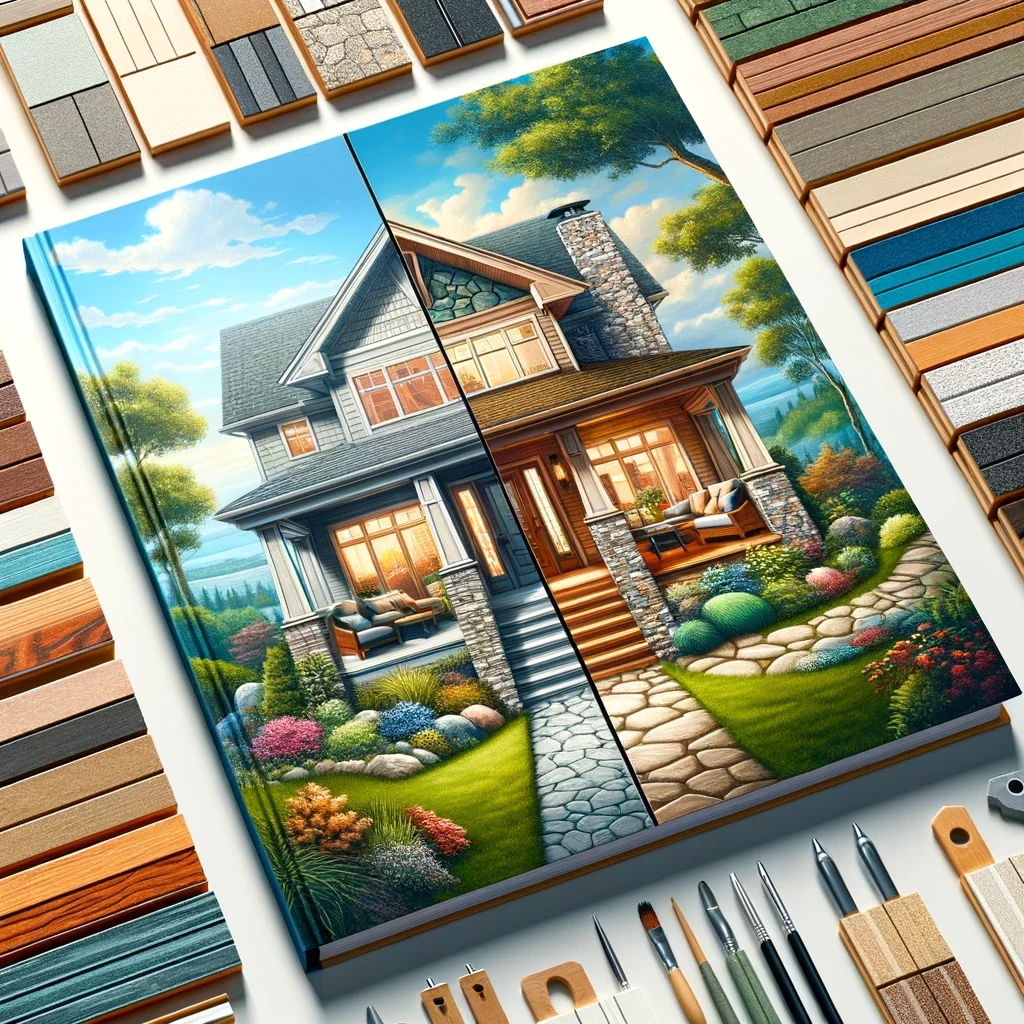As a pivotal aspect of your home’s exterior, siding not only protects your dwelling from the elements but also significantly influences its aesthetic appeal. The right siding material can enhance your home’s energy efficiency, increase its value, and reduce maintenance requirements. With numerous options available, selecting the best siding material for your home can seem daunting. This guide aims to provide you with a comprehensive overview of the best siding materials, offering practical tips and insights to aid in your decision-making process.
Factors to Consider When Choosing The Best Siding Materials
Before delving into the various siding materials, it’s essential to consider a few critical factors:
Durability
The lifespan and resistance of the material to weather, pests, and wear and tear.
Maintenance
The level of upkeep required to maintain the siding’s appearance and functionality.
Aesthetic Appeal
How well the siding complements your home’s architectural style.
Energy Efficiency
The material’s ability to insulate your home and reduce energy costs.
Cost
Both the initial investment and long-term expenses associated with the siding material.
Top Siding Materials for Your Home
Vinyl Siding
Vinyl siding is renowned for its affordability, versatility, and low maintenance. It comes in a wide range of colors and styles, including options that mimic wood, stone, and other natural materials. However, it may not be as durable as some other options, especially in extreme weather conditions.
- Pros: Cost-effective, low maintenance, variety of styles
- Cons: Less durable in extreme weather
Fiber Cement Siding
A blend of cement, sand, and cellulose fibers, fiber cement siding offers the appearance of natural wood without the susceptibility to rot or pests. It’s incredibly durable and fire-resistant, though it requires more initial investment than vinyl.
- Pros: Durable, fire-resistant, mimics natural materials
- Cons: Higher initial cost, requires professional installation
Wood Siding
Wood siding provides a timeless and natural look that can significantly enhance your home’s curb appeal. It’s highly customizable through painting or staining but requires regular maintenance to prevent decay, pests, and moisture damage.
- Pros: Beautiful natural appearance, customizable
- Cons: High maintenance, susceptible to pests
Metal Siding
Metal siding, typically made from aluminum or steel, offers excellent durability and fire resistance. It’s low maintenance and can withstand severe weather, but installation costs can be higher, and it may dent upon impact.
- Pros: Durable, fire-resistant, low maintenance
- Cons: Can dent, higher installation cost
Stone and Brick Veneer Siding
For those seeking a premium, long-lasting option, stone and brick veneer siding delivers unparalleled durability and a classic appearance. While these materials are among the most expensive, they require minimal maintenance and can last for decades.
- Pros: Exceptional durability, low maintenance, timeless appeal
- Cons: High cost, professional installation required
Conclusion
Choosing the right siding material is a significant decision that affects both the aesthetic appeal and structural integrity of your home. By considering factors like durability, maintenance, appearance, energy efficiency, and cost, you can select a material that meets your specific needs and preferences. Whether you opt for the affordability and versatility of vinyl, the durability of fiber cement, the natural beauty of wood, the resilience of metal, or the timeless elegance of stone and brick veneer, investing in the right siding material is a crucial step toward enhancing your home’s protection and curb appeal.
FAQ About Best Siding Materials
What is the most durable siding material?
Stone and brick veneer are the most durable siding materials, offering exceptional longevity and resistance to elements.
- Stone and brick veneer
- Exceptional durability
- Longevity
What siding material requires the least maintenance?
Vinyl and metal siding are known for their low maintenance requirements, needing only occasional cleaning to maintain their appearance.
- Vinyl siding
- Metal siding
- Occasional cleaning required
Can siding materials affect home energy efficiency?
Yes, certain siding materials like insulated vinyl and fiber cement can improve your home’s energy efficiency by providing additional insulation.
- Insulated vinyl siding
- Fiber cement siding
- Improved home insulation
How does the cost of siding materials vary?
The cost of siding materials can vary widely, with vinyl being one of the most affordable options and stone or brick veneer being among the most expensive.
- Vinyl: Affordable
- Stone/Brick Veneer: Expensive
Can I mix different siding materials on my home’s exterior?
Yes, combining different siding materials can enhance your home’s aesthetic appeal and allow for customization. However, it’s essential to ensure compatibility and proper installation techniques.
- Enhances aesthetic appeal
- Allows for customization
- Requires proper installation

